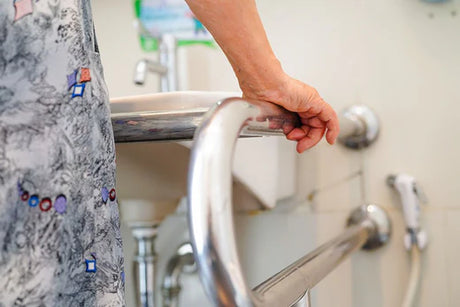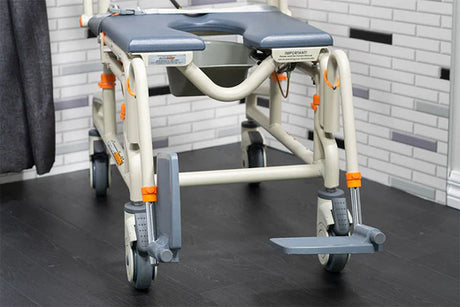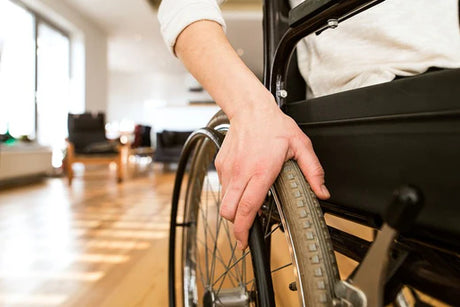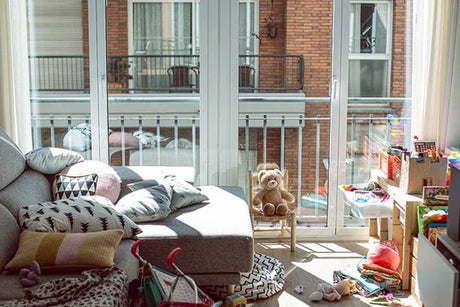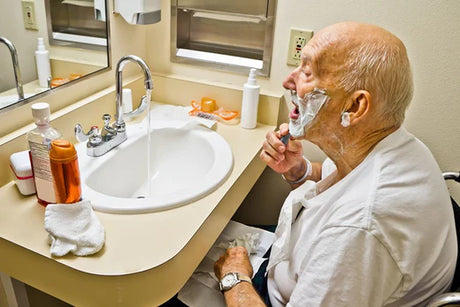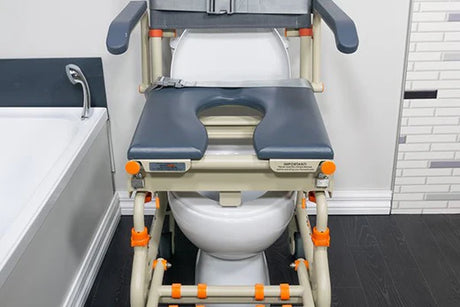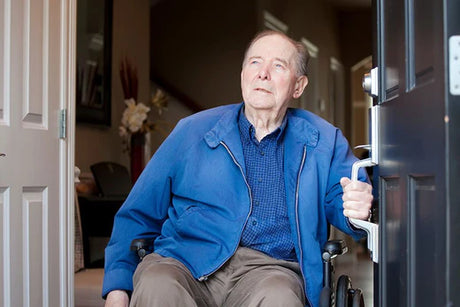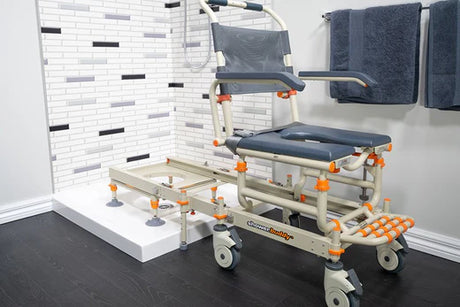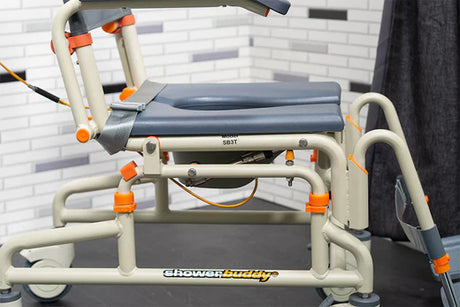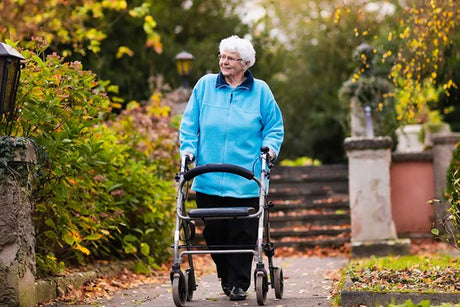Note: The information in this article is general only and should not be taken as a substitute for advice from an occupational therapist or other rehabilitation professional engaged in your loved one’s care. Always consult your local health authorities for more specific guidance.
We work with many OTs and families as they support individuals using the bathroom with the help of Showerbuddy equipment. Through this process and hearing their stories, we’ve come to learn about some of the incredible ways families can circle around their loved one and assist them to make the difficult rehab journey a bit less stressful.
Listen to your loved one’s feelings and requests
When someone experiences an injury that leaves them unable to perform daily tasks they are used to completing, there can be a tremendous sense that they’ve lost control. While many of our daily functions might not even be consciously done (i.e. just part of the usual ‘routine’), for someone with a mobility impairment, these become massive obstacles to navigate.
While families typically want to simply be as much help as they can be, it’s crucial that they approach support with a listening ear and open mind. Often families can feel a bit stuck between professional advice and the wishes of their loved one. That’s why it’s important to keep communication high between the OT, carer, family and the individual. Occupational therapy is a discipline that is based around making daily tasks easier – there’s often a number of approaches for any given task, so the initial home assessment is an opportune time for your loved one to express how they would like to approach daily life during physical recovery.
Remember, becoming suddenly incapacitated isn’t just a physical stress, but mental as well. Don’t expect complete clarity or understanding of the injury on day one. In fact, many people going through rehabilitation will adjust their preferences and wishes throughout the journey.
What our community of families and OTs do for their loved ones and clients is nothing short of amazing. From what we have seen and heard, support extends far beyond lifting, transferring and physical care. Families need to encourage their loved one to share their thoughts and feelings, in a way they’re comfortable with. It may be upsetting to hear some of their frustrations, but it’s equally important that they feel like people are listening.
Some people going through a big rehabilitation journey may like to document their experiences as a means of tracking progress or having something to look back at later. This can be an excellent way for them to express their feelings in a different way to conversation with those around them.
Reassure them about the support in place
When we lose our ability to look after ourselves completely, it doesn’t take much to start feeling isolated and alone. Our social lives and personal rituals are totally interrupted. As a family member, you will want to ensure that your loved one understands the breadth of support in place for them including transport, in home care, bathroom assistance and the rehabilitation programme.
If your loved one feels like they are not getting help they need in any way, it’s important to check in with their OT and put a plan in place to address this.
Keep focused on the goal of rehabilitation
Coping with a serious injury is a lot for anyone. Families may even struggle with the trauma of seeing a loved one incapacitated. However, as their closest support, it’s essential to remain as positive and outcome-focused as possible. Rehabilitation from a serious injury is typically a long programme of activities and therapies. As family members, you can help by providing encouragement around the benefits of sticking to the schedule, and keeping up with all the micro exercises the PT or OT have set.

Be careful to not make the rehabilitation the only topic of conversation
Unsurprisingly, those in the process of rehabilitating an injury don’t want to talk about it constantly with family and friends. Quite the opposite; conversations about anything other than the injury will be a welcome respite. This is a good way of keeping them connected to what’s happening outside of their immediate world of recovery.
Too much talk about rehabilitation can be overwhelming and counter-productive. There will be plenty of moments throughout the day where this will be talked about as part of the care plan; try not to make it small talk either.
Help create a sense of routine and ‘normality’ in the home
When someone is left incapacitated by an injury, the life changes in so many different ways. We aren’t wired to enjoy change so something this major can really take a toll. As the family, you can help mitigate this by keeping family traditions going and including them in these. It could be as simple as making sure they are in the living room watching TV with everyone, or a good conversation around the dinner table. If that’s not practical, bring the family to them.

Anyone going through a significant period of recovery will be sensitive to their family and routines changing around them. We can help our loved ones feel settled by assuring them that while they’re supported, the family are still going about their daily lives too.
Celebrate milestones of rehabilitation
Rehab is made up of a series of physical goals towards ultimately regaining movement as best as is possible. As family, don’t be afraid to celebrate with your loved one when they move past a certain stage. Your OT can help identify the different milestones.
Lean on the expertise of the occupational therapist (OT)
No one expects you to have all the answers to questions that come up during rehabilitation. Your OT and PT set the programme for recovery and handling daily life. If there are challenges that come up, make sure you tap into these support services. A family member can only do so much – there are times where getting professional backup is simply required.
Make the bathroom routine as dignified as possible
Using the toilet and bathing are two of the most personal parts of our daily rituals. When someone is no longer able to do these alone, it can be very difficult to maintain a sense of privacy. Either a carer or family member will be assigned the task of supporting that person to use the bathroom.
In order to maintain a sense of dignity, it’s a good idea to let your loved one take the lead around the routine that works for them. Even the smallest details can make a difference, so make sure the bathroom plan is something your loved one is in control of.
Use equipment that doesn’t require any permanent home modification
A lot of the struggle, hazards and loss of dignity through bathroom use comes through the physical transferring of someone between toilet, bath and chair/bed. Even a qualified carer runs the risk of injury with repeated heavy carries.

Want to find out more on Showerbuddy?
Showerbuddy is a great solution for anyone with mobility impairment that prevents full bathroom use. We have many users who choose Showerbuddy for its ability to adapt over time as motor abilities improve through rehabilitation. Find out more about our range in the solutions section of our website.
Further Reading
- Caring for someone with an injury – AfterTrauma.org
- Life-changing injuries Support – HealthTalk.org
- Caring for the Caregiver – burke.org













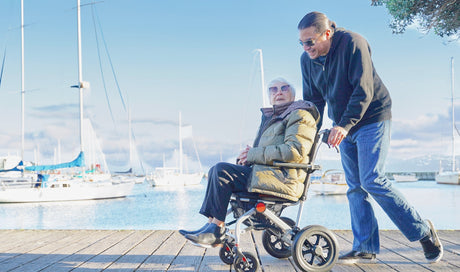
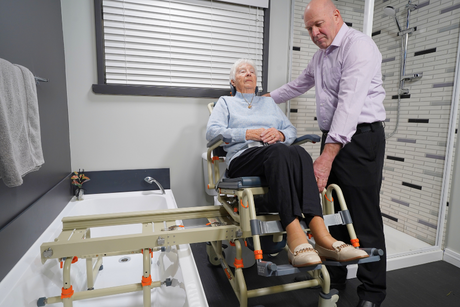
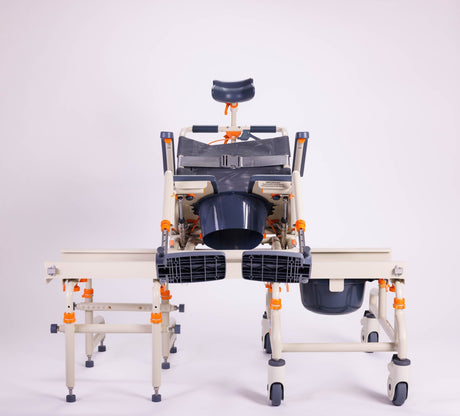
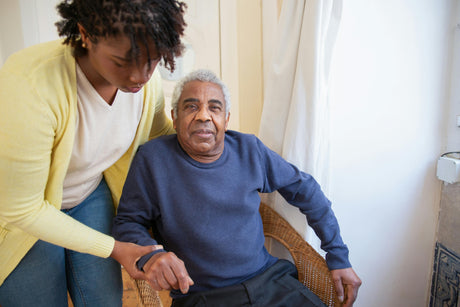
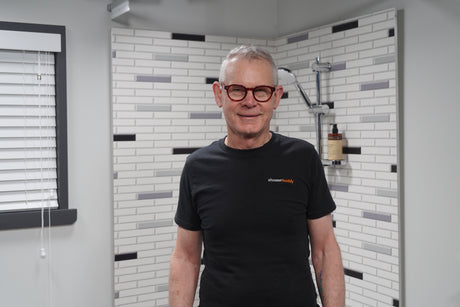
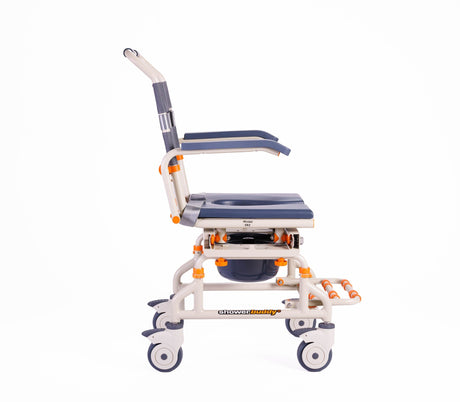
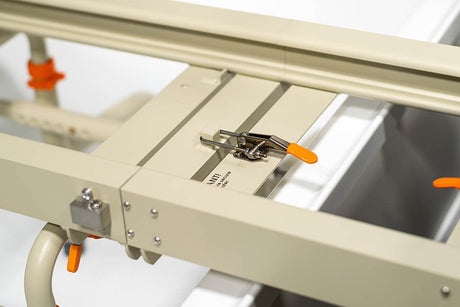
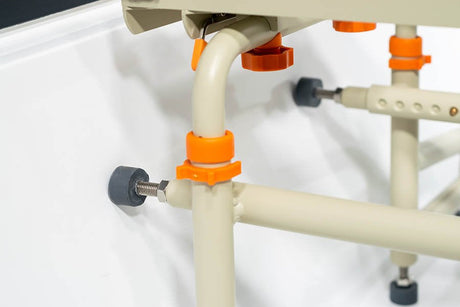
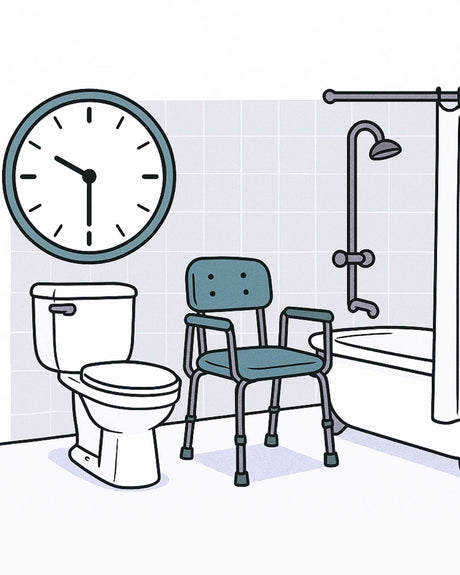
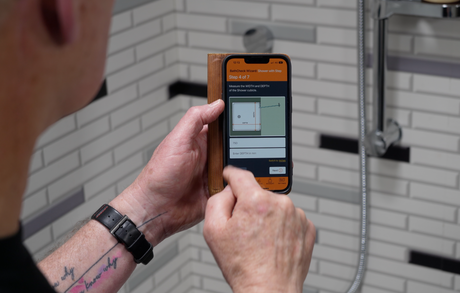
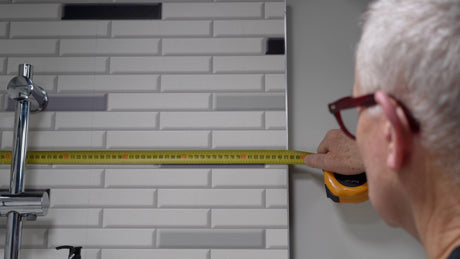

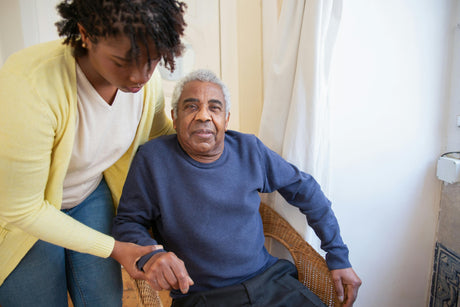

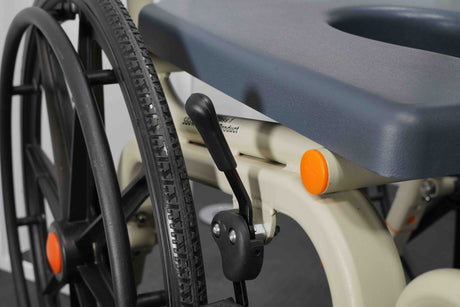


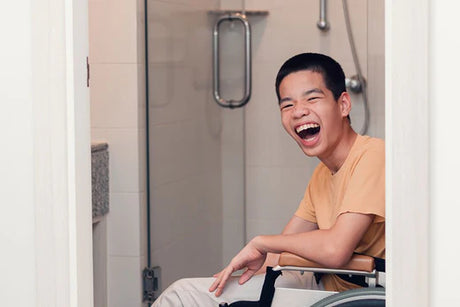
![Toilet Training A Young Child With Mobility Challenges [And How A Shower Chair Can Help]](http://shower-buddy.com/cdn/shop/articles/toilet-training-disabled-child_520x500_a90e5234-d372-435d-aa56-8da15dd3836c.webp?v=1722557239&width=460)



